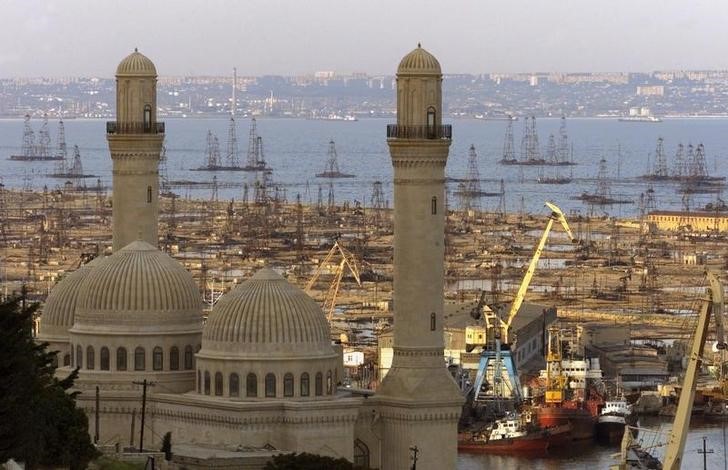By Catherine Ngai
NEW YORK, June 15 (Reuters) - Azeri state oil company
Socar's trading division is looking to expand in North America,
having opened an office in Calgary in recent months and eyeing a
second one in Houston, its chief executive told Reuters.
The company, which opened an office of some 15 staff in
Calgary, is moving away from being just a state-owned marketing
arm and is now trading local Canadian crude grades, natural gas
and financial derivatives. It also holds some storage at
Cushing, Oklahoma.
The move into Calgary, which includes hiring former
PetroChina and BP Plc BP.L executive Gary Pon as its head of
trading, gives the company a chance to grow market share in a
bigger part of the opaque crude market while others scale back.
"It's difficult to expand when everyone is growing. In a
situation when there are more opportunities left (as others have
scaled back) and with current market volatility ... with higher
risk, the trading companies that can manage risk are stepping
in," said Arzu Azimov, chief executive of Socar Trading.
"It was not the original intention, but people say we're
moving towards becoming a merchant trading house."
Geneva-based Socar Trading was set up in 2007 as the
marketing arm of Azerbaijan's national oil company, but has
since moved to trading third-party crude and products.
Last year, it hired former Phibro staff in London after
Occidental Petroleum (NYSE:OXY) wound down operations in 2014.
A 60-percent slump in global crude prices forced producers
to slash thousands of jobs and millions in capital expenditures.
In early 2015, Nexen Energy closed down its crude oil trading
division following a round of job cuts.
Socar's Calgary office, which includes four to five traders,
adds to the company's global presence, as it already has
locations in Singapore, London, Geneva and Dubai.
"With our Houston office, the volumes will grow," he added,
citing that he was open to opening an office in other cities.
Last month, Socar's Azerbaijani parent announced that it was
closing several foreign offices - including those located in
Belgium and Germany - to curb spending amid the oil slump.
Azimov said the closures were part of a cost-saving
program, but not related to its trading division. He said that
instead, market volatility has helped the trading arm.
Azimov said he expects the market to reach around $60 a
barrel by year end, though he does not exclude a drop to $40 in
the interim.
